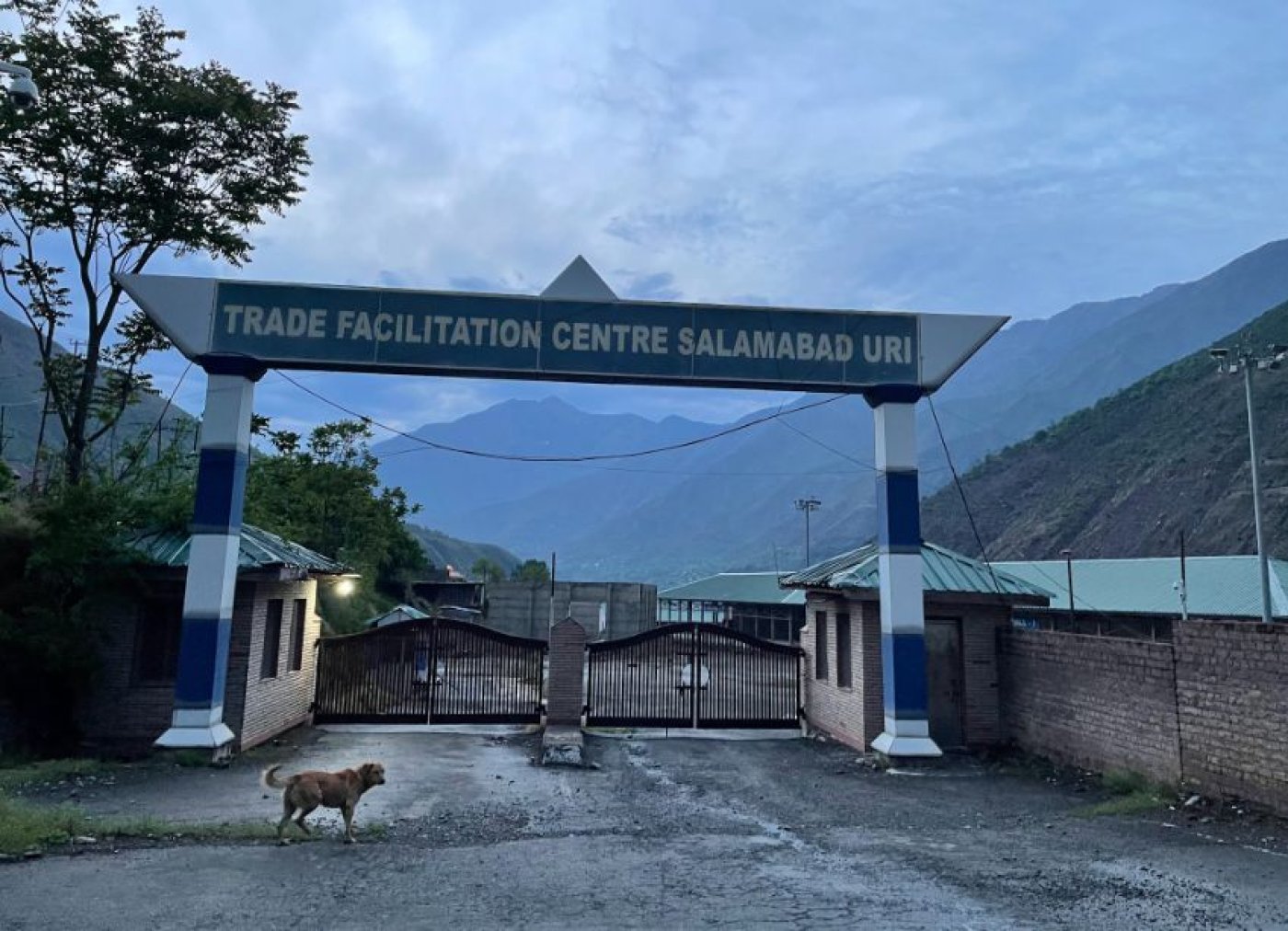Uri & Srinagar: A normal, cold February was winding down in 2019, when Samiullah Bhat received a truck load of fresh fruit, including bananas and grapes, from Maharashtra. The truck, like many others, stayed for a week at Uri—a frontier town astride the Line of Control (LoC), the de facto border between India and Pakistan—as Bhat completed a list of formalities required to barter goods with counterparts in the other Kashmir, under Pakistani control for 76 years.
As payment for the fruit, Bhat was eagerly preparing to receive dry fruit, carpets and textiles from Pakistan at the Salamabad Trade Facilitation Centre in Uri, about 110 km north of Srinagar. There was “massive demand”, he said, the truck from Pakistan promising “substantial profit to me”.
Bhat, now 40, would not share details, but he said he had successfully traded goods across the LoC for a decade, beginning a year after the border opened for barter business on 21 October 2008, when Uri began receiving trucks from from Muzaffarabad in Pakistan-occupied Kashmir, 55 km to the east.
Neither did Bhat’s fruit truck cross the border that year nor did he receive the truck from Pakistan, an order three times larger than any he had ever placed. He had borrowed Rs 80 lakh to buy enough fruit to barter for Pakistani carpets, dry fruit and textiles.
When we met him, Bhat, wearing a sweater despite the warmth of a May morning, was unsmiling. From his office, which is part of a women’s clothing store that he runs in Srinagar’s Poloview market—cleaned and refurbished before a recent summit of G-20 nations—he often stared out of the window, sometimes banging on a table while talking.
The once-prosperous merchant gulped water frequently, his manner was curt and—with no way to repay the money he owed suppliers and banks—he confessed to dark thoughts.
“I’ve suicidal thoughts,” said Bhat, “And I’m on anti-depressants.”
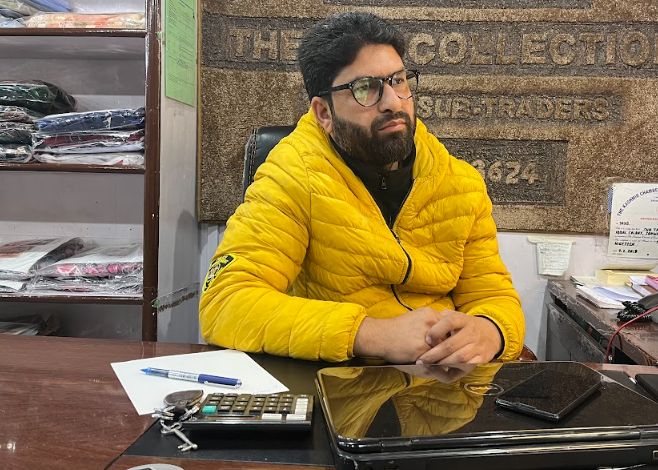
The Bridge That Was Never Repaired
The trauma of Bhat and more than 300 other traders and thousands of others who made their living on the barter trade—in a state that has one of India’s highest unemployment rates, as Article 14 reported in May 2022—began on 8 March 2019.
They discovered that the trade route through Uri had been abruptly closed by the Indian authorities due to “essential repair work” on the Kaman Aman Setu bridge—a single-lane 220-foot long link connecting the Indian side of Kashmir to the Pakistani side.
“The initial notification from the army informed us of a seven-day trade ban to facilitate bridge plate replacements, which we accepted without much concern,” Bhat said. “However, the subsequent notice revealed an extension of the repair work to 15 days, raising our suspicions. Nonetheless, we remained optimistic about the eventual resumption of trade.”
Traders like Bhat knew that it had been just over half a month since a suicide-bomber had driven his explosive-laden car into an Indian paramilitary convoy at Pulwama in southern Kashmir on 14 February 2019, killing 40 troopers. They knew that India-Pakistan tensions had escalated that year, as India prepared for general elections.
As the bridge-repair closure was extended for another 15 days, Bhat’s fresh-fruit began rotting, and his optimism waned. Like other traders, he frequently sought updates from the local administration and the army, hoping he could still recoup his investment.
The bridge was never repaired.
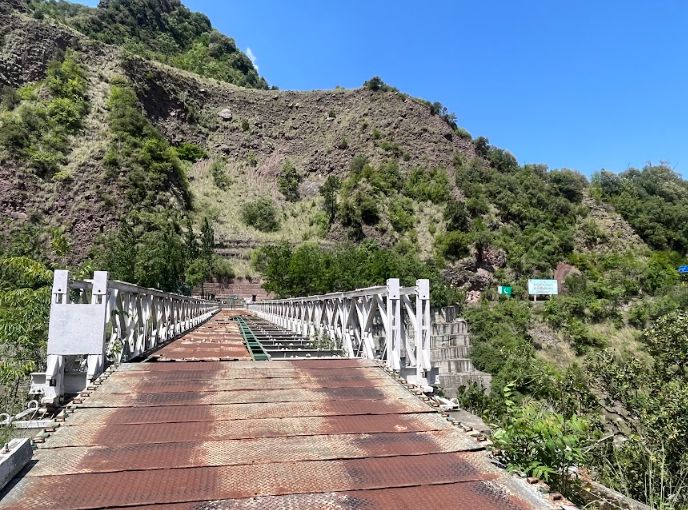
‘Trade Routes Used To Funnel Weapons, Narcotics Etc’
On 18 April, the union ministry for home affairs (MHA) announced an indefinite suspension of barter trade across the LoC. A notification issued that day said the union government had “received reports that the Cross LoC trade routes are being misused by the Pakistan based elements for funnelling illegal weapons, narcotics and fake currency etc”.
The MHA statement alleged that “...a significant number of trading concerns engaged in LoC trade are being operated by persons closely associated with banned terrorist organisations involved in fuelling terrorism/separatism”.
"It has, therefore, been decided by the Government of India to suspend the LoC trade at Salamabad and Chakkan-da-Bagh in Jammu and Kashmir with immediate effect,” said the statement. “Meanwhile, a stricter regulatory & enforcement mechanism is being worked out and will be put in place in consultation with various agencies. The issue of reopening of LoC trade will be revisited thereafter."
It has been four years and three months since that statement. With India-Pakistan relations in a cold freeze, there is no sign that trade will be allowed any time soon.
Many businesses that depended on cross-border trade fell apart, and thousands of employment opportunities were lost. A think tank based in New Delhi estimated, in a 2021 study, that 22,000 jobs were lost by the trade ban and losses exceeded Rs 40 crore in the year following it.
Article 14 sought comment from over a dozen officials dealing with the trade issue, but no one volunteered a response. There were no replies to a detailed questionnaire to J&K chief secretary Arun Kumar Mehta, and commissioner and secretary to the industries & commerce department, Vikramjit Singh. The director of the Kashmir industries & commerce, Mahmood Ahmed Shah, suggested we contact “the administrative department”.
“Honestly, the government has reduced [our business] to ashes,” said Bhat. “That trade was not just a means of survival, it was our very sustenance and livelihood.”
The government attributed the financial troubles of many traders, who they said underpaid taxes. After the trade ban in 2019, many received income-tax notices dated to a decade ago, when the trade, the traders argued, was supposed to be tax free, since no money was directly involved.
A Ban Damaging In Its Abruptness
Four years after the trade ban, Uri, the once-thriving trade centre that handled the barter trade, has the appearance of a ghost town. The offices of traders are closed, the trucks, their drivers and loaders and others who depended on the trade are gone, the town’s 100,000 people earning a fraction of what they once did or unemployed.
Barring some sleep-deprived, armed sentries facing no-man’s land beyond, there’s little sign that Uri is or will be a hub of ‘border tourism’, as the government hoped, despite an ongoing truce between India and Pakistan, with cross-border firing silent for the last two years and five months.
Bhat and other traders said the government gave no indication of a trade ban, temporary or otherwise. It was most damaging, he explained, in its abruptness.
“The trade ban hit us like a wrecking ball, leaving our payments stranded and unrecoverable,” said Javaid Makroo, 45, who with his business partners once sent banana, grape, tomato and cumin across the border from his Srinagar and reported that his income fell 55% after the trade ban.
Makroo and his partners were forced to sell five trucks and laid off 18 of 20 employees. “The way things are looking, I’m concerned that I might have to sell off my properties to address my liabilities,” said Makroo. “The government has pushed us into chaos.”
“Had they (the government) granted us a two-week notice, saying that this trade would end, while also urging the resolution of any financial entanglements… it is possible that we would have been leading a relatively normal life today,” said Bhat, as he displayed messages from a supplier, persistently reminding him of pending dues.
The abrupt trade shutdown, Bhat added, had disrupted established trade networks, severed valuable business connections built over years and sabotaged the belief that progress in trade directly correlated with the development of Kashmir.
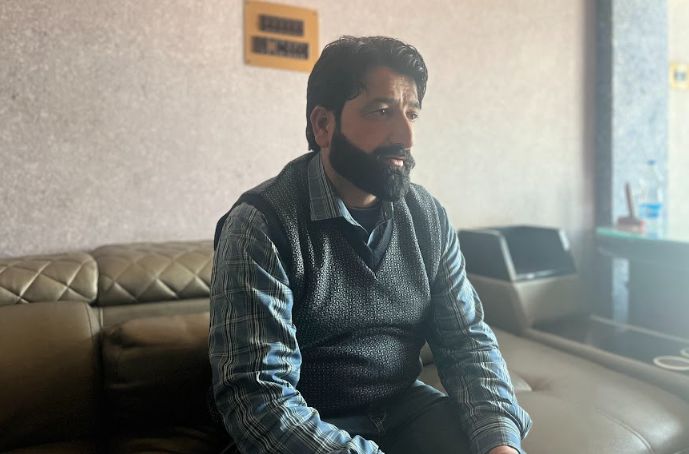
Ripple Effect: Thousands Hit By Trade Ban
“This move was no short of a betrayal,” said Bhat. “New Delhi had only set the stage (by allowing trade), but it was traders like me who played a pivotal role.” Bhat said building a barter business was not easy, but they “pressed on”, creating a “supply-and-demand” network and building connections with Pakistani traders.
Despite suffering losses “worth crores”, Bhat said, Kashmiri traders remained steadfast and kept the trade alive even during the worst of times, such as the Kashmir uprising in 2010 and the unrest following the death of militant commander Burhan Wani in 2016. “We never approached the government to complain or seek reimbursement for our losses, but instead a ban was imposed on the lives of 327 Kashmiri traders and their families.”
Riyaz Ahmad, another trader, argued that the trade ban not only severed the livelihoods of these traders but also impacted Kashmir’s larger economy.
“This trade formed an extensive chain that had a ripple effect on everyone in Kashmir,” said Ahmad, a trader since trade began in 2008. “It provided employment opportunities to various people, from traders and retailers in Srinagar to truck drivers and labourers in Uri.”
“If you examine the data, you’ll realise that over 15,000 people were able to earn a living thanks to this trade,” said Ahmad. “With the abrupt shutdown of this trade, the government gained nothing but severely damaged Kashmir’s economy.”
A middle-level official, speaking on condition of anonymity, acknowledged the economic impact of the ban and said the administration “empathised” with the traders.
“It’s crucial to prioritise the well-being of our people and maintain strict vigilance in these challenging times,” the official said. “The neighbouring country has exploited cross-border trade to facilitate the infiltration of terrorism into the valley. Therefore, as long as they continue to disrupt peace, the suspension of cross-border trade remains a crucial measure.”
“We remain committed to exploring alternative avenues for economic growth and development that can mitigate the miseries faced by affected individuals,” said the official, although there is no sign what these might be.
22,000 Jobs Hit, Rs 40 Crore Loss In A Year
A 2021 study by the Bureau of Research on Industry and Economic Fundamentals (BRIEF), a New Delhi think tank, estimated that 22,000 people were directly associated with the LoC trade via two trade facilitation centres—Salamabad in Uri and Chakan-da-bagh in Poonch—in Jammu & Kashmir.
“More than 246 traders in and around Uri with a staff of at least three each making 984 families, 150 trader representatives making 150 families, 214 drivers with equal numbers of helpers making 428 families, 100 laborers working to load and unload trucks at the TFC, and 200 laborers working to load and unload at the Mandi have lost their livelihoods,” said the report, Bridging the Divide: Potential of cross-LoC trade for sustaining the border economy of Jammu & Kashmir.
The study estimated that the economic loss from suspension on trade on the Uri-Muzaffarabad route (over a year, from 8 March 2019) was Rs 40 crore, including wage losses of Rs 2.7 crores for labourers at the Salamabad trade facilitation centre and the Srinagar mandi or market, economic losses of Rs 25 crore to traders, Rs 9 crore to the transport community, Rs 1.45 lakh in lost wages to agents, representatives, middlemen and others.
The study said the trade ban not just cost labourers wages due, but left most of them unemployed because there were few alternative job opportunities.
“As cross-LoC trade is a barter,” said the study, “the financial implications—including disturbed payment cycles—from not closing barter balances between traders on either side of the LoC make shifting to completely new business avenues difficult for these merchants.”
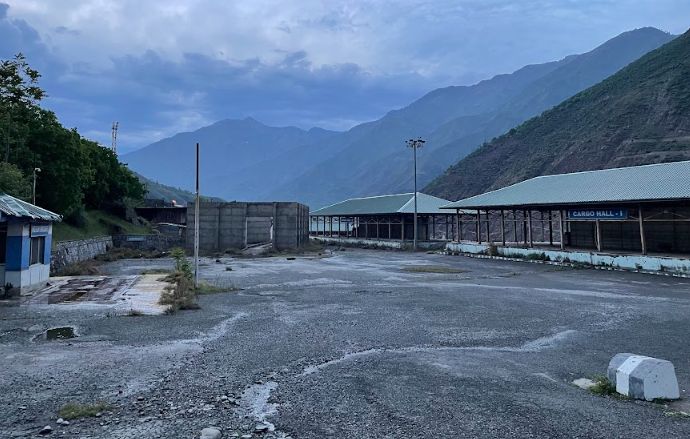
Fresh Shoots Of Hope In 2008
Following three armed conflicts between India and Pakistan, the two nuclear-armed neighbours decided to allow intra-Kashmir trade in 2008 as part of measures to ease tensions over Kashmir.
The two countries agreed on the movement of trucks, code of conduct for drivers, permits, security and timings before opening the Uri border for trade, the thaw first evident when a bus service began across the borders of divided Kashmir in April 2005.
Both the nations agreed to a barter system with the trade being limited to 21 items, from carpets to wooden handicrafts to saffron and fresh fruit, and scheduled to take place two days per week, extended in July 2011 to four days through the 55-km Uri-Muzaffarabad route in Kashmir and the 46-km Poonch-Rawalakot route in Jammu.
The start of LoC trade marked a paradigm shift in New Delhi and Islamabad’s approach in dealing with the topic of Kashmir ever since the subcontinent was partitioned in 1947. This trade was expected to unleash an economic dividend between the two sides of Jammu and Kashmir (J&K) and, eventually, aid peace.
The value of trade reached Rs 7, 500 crores over a decade to 2019, the BRIEF study said, with over 100,000 trucks crossing the border, generating freight revenues of Rs 66 crore to J&K transporters and Rs 90 crore to labourers.
The trade and the employment it provided buoyed the lives of the Uri’s 100,000 people, especially small-scale traders, labourers and drivers. Small hotels, restaurants and the local market flourished, breathing new life a once-moribund region.
“When this trade started in 2008, it revolutionised Uri and kept on doing so for one decade,” said Hilal Turki, president of the Salamabad Cross-LoC Traders’ Union. “But, when the trade was closed in 2019, it inflicted a devastating blow upon Uri’s local population, robbing them of their economic livelihoods and leaving a trail of destruction in its wake… plunging countless families into uncertainty and despair.”
Can’t Find Work Since Ban: Uri Locals
Each individual involved in the trade earned Rs 800 per day, Turki estimated.
Without a stable source of income since trade ended in March 2019, Imtiyaz Bhatti, a labourer from Uri, said his life had been “shattered”.
“Since the trade was banned, I’ve struggled to find work,” said Bhatti, a father of four, whose income is down from a regular Rs 800 per day to Rs 500, but that is only when he finds work.
Mohammad Shafi Wathloo, chairman of the Uri Market Association Uri, seconded Bhatti’s anguish. Since trade began in 2008, not a single day passed when small shanties or rented rooms were fully booked, said Wathloo.
“The government’s decision has left [traders and labourers] in a dire state, with no jobs and unable to even provide food for their families, let alone cover their children’s education expenses,” said Wathloo
Nazir Khatana, the owner of a small restaurant in Uri market said the region had returned back to its “former gloomy state”, reminiscent of the times before 2008.
“Back in 2018,” Khatana said, “I decided to invest Rs 400,000 in setting up small shanties. It was profitable for a year, but then the government shut down the trade. The rooms have been locked ever since.”
If the devastation of their business after the border shut was not enough, many traders described how they were hit with tax demands for an activity that they believed was to be tax free.
In A Web of Tax Troubles
Mohammed Tariq Khan made a living selling spices when barter trade began in 2008. He was one among a few dozen early traders, dealing in spices, fresh and dry fruit and papier mache products.
His income quickly rose 20 times, Khan said.
“We jumped at the opportunity to join the barter trade because we knew it was tax-free and we expected it to be more profitable than other businesses in the valley,” said Khan, who now runs a small convenience store on the outskirts of Srinagar. All his savings have dried up, he added, and he has sold his wife’s gold to clear debts of Rs 40 lakh.
Khan’s situation worsened one day in March 2020 when he received a letter from the income-tax department with a tax demand of Rs 87 lakh.
“We were quite clueless,” Khan said. “We were told (by the government) that this trade was exempt from taxes. But now, the income tax department has been insisting that we pay taxes on a trade that took place almost a decade ago.”
When the barter trade began in 2008, the government classified it as a ‘zero tariff trade’. Instead of treating traded goods as imports and exports, they were designated as ‘goods traded in’ and ‘goods traded out’, avoiding classification as international trade.
This is because the LoC is not considered a legal international border by either India and Pakistan, and, so, the trade was considered domestic, as taking place between two regions within a state.
After the 2019 trade ban, the income tax department has cracked down on cross-LoC traders, who have received multiple demands for penalties related to assessment years as far back as 2011-12.
“Now the tax department is accusing us of missing some columns, making mistakes in others and not paying enough taxes,” said Khan. “It’s honestly kind of ridiculous that they’re bringing this up after almost ten years.”
A Srinagar income tax official, speaking on condition of anonymity since he was not authorised to talk to the media, said many traders had evaded taxes, revealing a fraction of their actual profits.
“These notices are directly issued by the CPC (central processing unit) in Bangalore,” said the official. “We had sent them notices even before the ban was implemented, but they disregarded them. Everyone is obligated to fulfil their tax obligations under the law.”
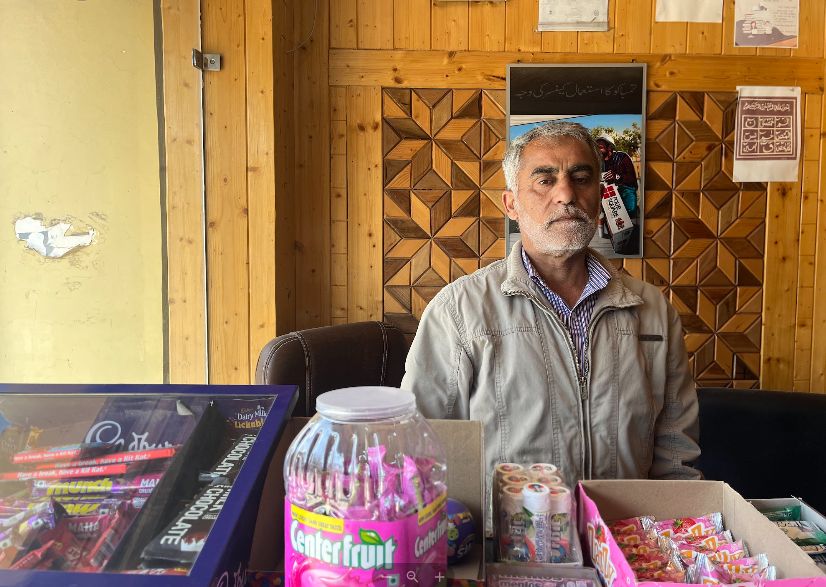
The Dangers Of Calling Pakistan
Traders said that it was no longer safe to call their counterparts in Pakistan, since trans-border communication attracts attention from law-enforcement agencies.
“Making calls to these Pakistan-based traders is considered a serious crime by agencies,” said a cross-LoC trader, whose residence and business were raided by the National Investigation Agency (NIA) in 2017.
Traders said that they had repeatedly reached out to the lieutenant governor of J&K and the MHA, asking for an alternative route to be opened for two weeks to settle barters that were fixed but not settled: meaning goods were sent to Pakistan but no goods were returned in response.
Article 14 sought comment from lieutenant governor Manoj Sinha, emailing his office and his media advisor Yatish Yadav. There was no response when this story was published. We will update it if there is.
In Limbo
“Every government failed to take any action in response to our pleas,” said Turki, the Salamabad Cross-LoC Traders’ Union president quoted earlier. “If these governments had acted upon our memorandums (sic) and taken down the five or six troublemakers in our trade, 300-plus traders wouldn’t have been in this mess.”
Between 2011 and 2018, Turki said, he had suggested the installation of x-ray scanners that could scan entire trucks at the trade facilitation centre, regular monitoring of traders’ bank accounts, providing banking facilities, periodical meetings of cross LoC traders and creating a dispute-resolution pathway.
“If they had just listened to these suggestions and implemented them, nobody would be pointing fingers at us or questioning the legitimacy of this trade today,” said Turki.
A senior member from the Kashmir Chamber of Commerce & Industries (KCCI), speaking on condition of anonymity, said that their new 21-member executive, which took charge after elections in February 2023 after a gap of three years, was in no position to pressurise the government to resume cross-LoC trade.
“Even the previous body attempted to lobby for trade resumption,” said the official. “We are a small party in this matter and can only serve as facilitators between the two nations. We can only give suggestions or make an appeal to the government, that’s it.”
Back in Srinagar, Bhatt, the former trader, said there appeared to be no signs of hope.
“We were all made scapegoats in this trade between two warring nations,” said Bhat. “During times when the government required our assistance, they would readily include us in their decision-making processes. Now, times have changed.”
(Zaid Bin Shabir is an independent journalist based in Kashmir.)
Get exclusive access to new databases, expert analyses, weekly newsletters, book excerpts and new ideas on democracy, law and society in India. Subscribe to Article 14.

